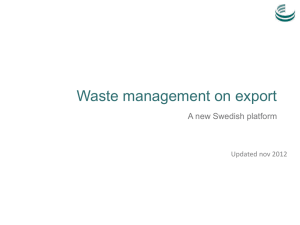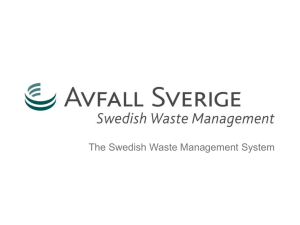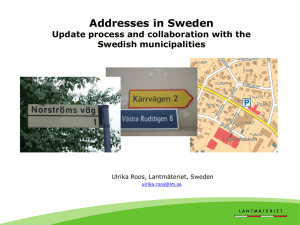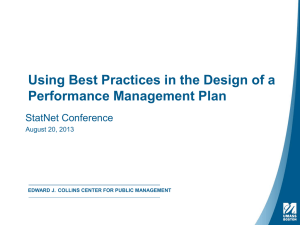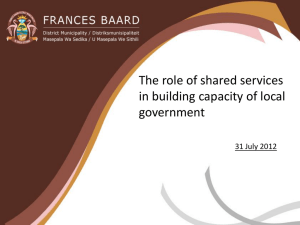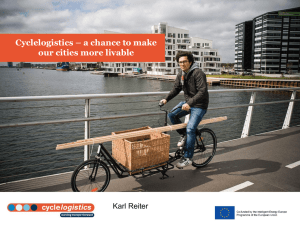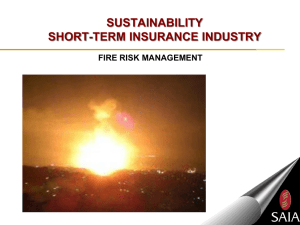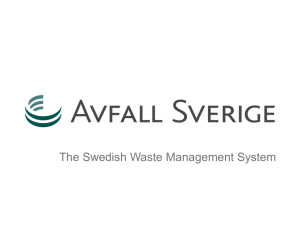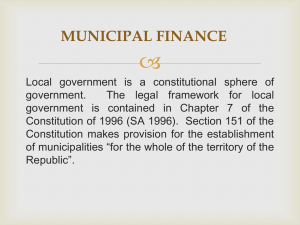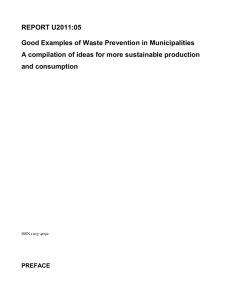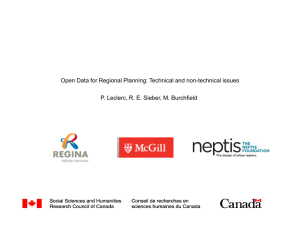Swedish Waste Management
advertisement
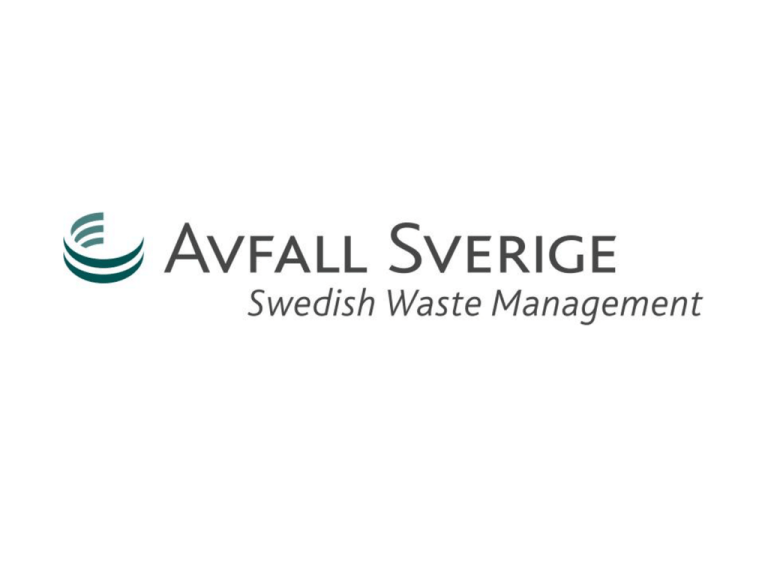
Sweden 9,4 million inhabitants 450 000 km2 Public responsibility for household waste Reduction fo climat gases Material for recycling Energy recovery Avfall Sverige Public waste management Front runner waste management field – Competence – World class infrastructure Environmental and social benefits Ensures long term work according to the waste hierarchy Zero waste! Avfall Sverige Waste management & recycling sector’s expert organzation – Reason: the municipalities' responsibility for household 400 members – Represent 99,9 % of the Swedish population Community contacts, advice, training, communication, development programme, lobbying, networking Primary task: represent and develop members by creating networks, providing information, influencing Members of Cewep, ECN, ISWA, Municipal Waste Europe Aiming toward an environmentally correct and sustainable waste management, for the benefit of society Development programme 15 years – 360 development projects Total cost SEK 68.9 million The projects are presented in reports published on the website Practical use for the members At least 35 reports/year, some of them translated into english Member advisory 9 advisors, experts on different matters Members can turn to the them for advice Guidelines, recommendations, templates Influencing work Target groups: – – – – – The parliament, the government, public authorities, various organizations, media. Long process: – everything is not visible, – requires many contacts. Decision-makers knows that Avfall Sverige – Swedish Waste Management is an important actor Guidance Avfall Sverige consists of the association Avfall Sverige and wholly owned service company Avfall Sverige AB Funding – membership fees – revenues from sales of education/training, reports etc. – development fee The Annual meeting appoints the Board – Municipal members vote Daily operation by CEO with 17 employees, with the support of working groups, committees etc Organization Annual meeting (General meeting) Board CEO Working groups Office Guidance committee Board 18 members – ten are elected representatives, mayors etc – eight administrative officials nominating committee should – “strive to ensure that the structure of the board reflects the association’s membership in terms of its organisational structure, size and geographical distribution, and strive to achieve as even gender distribution as possible”. Working groups Public procurement & legislation Biological recycling Landfill Energy recovery Export Hazardous waste Communication Logistics Material recycling Recycling centers www.avfallsverige.se Communication Trademagazine 5 issues/year Newsletter published when needed, about 20 issues/year, also published electronically Communication Joint communication 2006 – 2012: – – – – – Hazardous waste Material recycling Waste-to-Energy Biogas, bio-fertilizer and compost The roles and responsibilities of municipalities Key objectives: – to increase the knowledge about Swedish waste management – to increase the knowledge about the roles and responsibilities of municipalities Education Extensive training programme to increase the level of knowledge and competence In total 2,500 people take part in about 40 training programmes every year Qualitycertified since 2009 Online training programme Avfallsakademin (Waste Academy) Avfall Sverige’s vision Zero waste! Longterm goals 2020: Decoupling amount of waste – growth rates Strong upward movement in waste hierarchy - Municipalities, their companies are the engine and the guarantor of the transition GDP Amount of waste Waste hierarcy Swedish Waste Management Municipalities are responsible for the collection and treatment of household waste, excl producer responsibility material The responsibility and the performance is organized in several different ways Municipalities and their companies are also handling commercial waste Clear division of responsibilities Municipalities: • Collection and treatment of municipal waste • Information to households • Waste prevention Parliament/ Government Authorities Producers: • Collection and treatment of waste with producers responsibility Waste generator: • Private persons/households: Sort and leave waste at indicated collection points • Companies/Industries: Handling of own generated waste Waste trend 2008 - 2012 Swedish household waste Important success factors Waste management is a public service Clear division of roles and responsibilities that enable necessary investments Long-term regulations and economical steering instruments Co-operation between municipalities Collaboration between public and private sectors Focus on communication and public engagement Contact Weine Wiqvist Prostgatan 2, S-211 25 Malmö +46 40 35 66 05 +46 70 893 15 99 weine.wiqvist@avfallsverige.se www.avfallsverige.se www.minskaavfallet.se twitter.com/#!/avfallsverige facebook.com/sveriges.storsta.miljororelse
